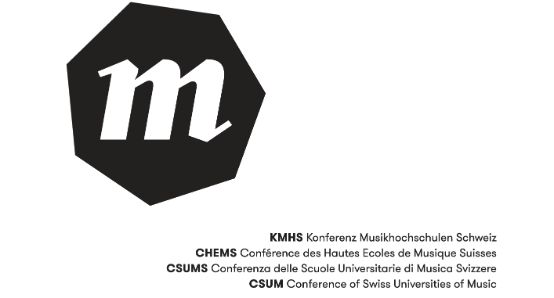Strengthening Music in Society

At the European Association of Conservatoires (AEC) congress held in Antwerp in October 2022, a paper entitled "Musicians as makers in society: a conceptual foundation for contemporary professional higher music education" caused quite a stir. It aims to place concepts such as artistic citizenship, critical reflection, cultural entrepreneurship and social engagement at the heart of tertiary music education.
Antoine Gilliéron - So how can we train young musicians of the highest calibre who are also artists capable of having a positive impact on society beyond their musical practice? The aim of this article is to highlight good practice in our music colleges on this subject.
The ideas listed above in relation to social and civic responsibility are explored in this landmark article in their interactions with concepts historically central to music education, namely artistic excellence, imagination and creativity, and musical heritage.
Based on the ethnomusicological notion of musicking (see inset), it provides dynamic responses to the needs of society. With the musician's role defined as a creator in society, this vision is underpinned on the one hand by immersion in the artistic milieu, and on the other by sustained practical experience in the community, with the aim of guaranteeing a transition to professional life capable of responding to the problems faced by communities.
Thus, a paradigm shift is recognized by all stakeholders as necessary to rethink the conceptual foundation of the higher education musical space. We need to support and strengthen professional musical practices that move in this direction, paying attention to this paradigm shift and the interdependent relationships it highlights between a musician's vision, craft and art, and his or her commitment to and for society. Maintaining this energizing flow between artistic craft and imagination on the one hand, and societal relevance and engagement on the other, is a central and growing challenge for our country's HEMs.
"L'HEMU prend ses quartiers" is a mediation project in which Master of Pedagogy students work to democratize music in Lausanne's working-class neighborhoods.
"Les concerts du cœur", supported by the HEM Genève - Neuchâtel, involves bringing music into EMS, hospitals and prisons by offering free concerts to the people living there.
In Lugano, a music school initiative aims to offer Ukrainian refugee pupils free lessons given by Master of Pedagogy students, particularly those of Russian and Ukrainian nationality.
In Basel, the Haute École's presence in society is reflected in various projects, such as musical mediation in museums, care institutions and schools, and fund-raising for humanitarian aid in the Ukraine.
The "Music in Context" program in Berne helps to structure curricula by organizing Majors and Minors around the central issue of cultural mediation and innovative concert formats.
Lucerne, Zurich and Kalaidos also offer such initiatives, which undoubtedly contribute enormously to social cohesion, the renewal of the musician's role in society and the expansion of professional prospects for music students.
The essence of music lies not in the musical works themselves, but in participation in their representation and in social action. Music is therefore not so much a noun as a verb: to make music. Making music means taking part, in all its forms, in a musical performance, and the meaning of musicking thus lies in the relationships established between participants (including the audience) through performance. Music is part of this iconic and gestural process of giving and receiving information about the relationships that unite the living world. It is, in fact, a ritual through which participants not only learn, but directly experience how they position themselves, or should position themselves, in relation to human beings and the rest of the world. These ideal relationships are often extremely complex, too complex to be expressed in words, but they are effortlessly expressed through musical performance, allowing participants to explore, affirm and celebrate them. Music is therefore as important to our humanity as participation in speech acts, and all human beings are born capable of taking part in them, not only by understanding existing gestures, but also being able to create their own.








